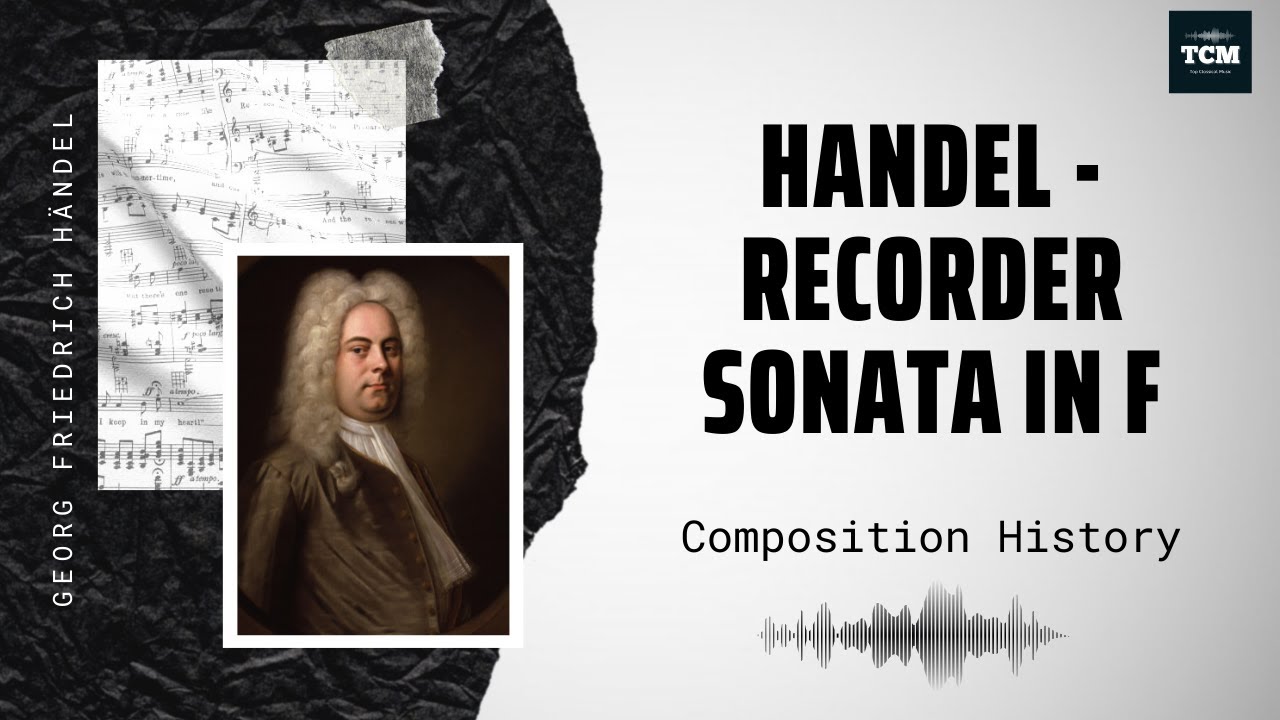Handel – Recorder Sonata in F HWV 369 – Music | History
The Sonata in F major (HWV 369) was composed (before 1712) by George Frideric Handel for recorder and harpsichord (the autograph manuscript, a fair copy made most likely in 1712, gives this instrumentation in Italian: “flauto e cembalo”). The work is also referred to as Opus 1 No. 11, and was first published in 1732 by Walsh. Other catalogues of Handel’s music have referred to the work as HG xxvii,40; and HHA iv/3,52.
Handel used an arrangement of the sonata in his Organ Concerto in F major (HWV 293).
Both the Walsh edition and the Chrysander edition indicate that the work is for recorder (“flauto”), and published it as Sonata XI.
George Frideric (or Frederick) Handel (23 February 1685 (O.S.) [(N.S.) 5 March] – 14 April 1759) was a German, later British, Baroque composer who spent the bulk of his career in London, becoming well known for his operas, oratorios, anthems, concerti grossi and organ concertos. Handel received important training in Halle and worked as a composer in Hamburg and Italy before settling in London in 1712; he became a naturalised British subject in 1727. He was strongly influenced both by the great composers of the Italian Baroque and by the middle-German polyphonic choral tradition.
Within fifteen years, Handel had started three commercial opera companies to supply the English nobility with Italian opera. Musicologist Winton Dean writes that his operas show that “Handel was not only a great composer; he was a dramatic genius of the first order.” As Alexander’s Feast (1736) was well received, Handel made a transition to English choral works. After his success with Messiah (1742) he never composed an Italian opera again. Almost blind, and having lived in England for nearly fifty years, he died in 1759, a respected and rich man. His funeral was given full state honours, and he was buried in Westminster Abbey in London.
Born the same year as Johann Sebastian Bach and Domenico Scarlatti, Handel is regarded as one of the greatest composers of the Baroque era, with works such as Messiah, Water Music, and Music for the Royal Fireworks remaining steadfastly popular. One of his four coronation anthems, Zadok the Priest (1727), composed for the coronation of George II, has been performed at every subsequent British coronation, traditionally during the sovereign’s anointing. Another of his English oratorios, Solomon (1748), has also remained popular, with the Sinfonia that opens act 3 (known more commonly as “The Arrival of the Queen of Sheba”) featuring at the 2012 London Olympics opening ceremony. Handel composed more than forty opera serias in over thirty years, and since the late 1960s, with the revival of baroque music and historically informed musical performance, interest in Handel’s operas has grown.
#MusicHistory
#ClassicalMusic
#Handel

Comments are closed